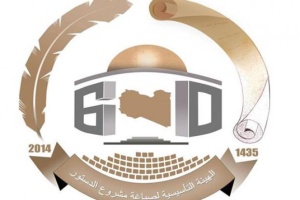This is chapter Six of the Libyan constitution that was approved by the Constituent Assembly on July 29
Libya Constitution – Chapter Six

Chapter Six
Local Government
Article 143: Decentralization
Local governance shall be based on the principle of expanded decentralization. The State shall commit to supporting it within the unity of the State.
Article 144: Levels and Standards of Local Government
The State shall be divided into governorates, municipalities and other administrative levels according to the demands of national security and the balancing of the standards of population, area, geographical unity, economic and historic factors in a manner that ensures social justice, peace, communal harmony and development, while taking into account efficiency and effectiveness. Other administrative units may be established if public interest requires and as prescribed by the law.
Article 145: Independence of Local Government Units
Local government units shall enjoy legal personality and financial and administrative independence. Local interests shall be administered in accordance with the principle of free management.
Article 146: Governorate and Municipal Councils
Governorate and municipal councils shall be selected directly by free universal suffrage and secret ballot. The composition of the governorate council shall take into account representation of municipalities located within its circumscription. The law regulates the selection of governors.
Article 147: Competences of Local Government Units
Local government units shall enjoy autonomous, transferrable, and shared powers from and with the central authority. Shared and transferrable powers shall be distributed based on the principle of branching. Local units shall be competent with issuing regulations and legislations. All of the above shall be in accordance with the law.
Article 148: Funding of Local Government Units
Governorates and municipalities shall have centralized resources appropriate for discharging their duties, along with self-generated resources including duties, remedies, and taxes of local nature, as well as returns on their investments, grants and wills they receive and whatever they acquire in loans and any other returns specified by the law. The State shall guarantee financial balance among the local government units in a manner that ensures harmony. Every competence transferred to local government units from the central government shall be associated with the appropriate financial resources. Local government units, within the bounds of their respective approved budget, shall have the discretion to dispose of their resources according to the rules of good governance.
Article 149: Subsequent Oversight
Local government units shall be subject to subsequent oversight regarding the legitimacy of their respective works.
Article 150: Interference of Executive Authority
The executive authority shall only interfere to ensure sustainability of the public facilities taking into account the national standards in accordance with the Constitution and law. The Judiciary shall be competent with deciding on any conflict between or among the local government units and the central government.
Article 151: Principle of Partnership and Cooperation
Local government units may establish mutual partnerships in accordance with the principles of balance and integration to implement programs or accomplish works of common interest. They may establish economic zones between them. They may also establish, under the supervision of the central government, foreign relationships for partnerships and cooperation to serve equal and balanced development. All of this shall be according to controls and procedures defined by the law.
Article 152: Local Participation
Local government units shall adopt the necessary measures to ensure participation of the citizens and civil society organizations in the preparation of local development programs and shall follow up their implementation according to controls defined by the law.
Article 153: Advisory Council for Local Government
A council named the Advisory Council for Local Government and it shall comprise the governors. It shall undertake the following duties:
1- Express opinion on draft laws related to planning, budget, local finances, and any other laws related to local governance. It may also propose related draft laws.
2- Strengthen coordination and cooperation between local government units and with the relevant executive authorities.
3- Resolve conflicts between local government units.
The council shall be regulated by law.
____________________________________________
Chapter One - Chapter Two - Chapter Three - Chapter Four - Chapter Five







